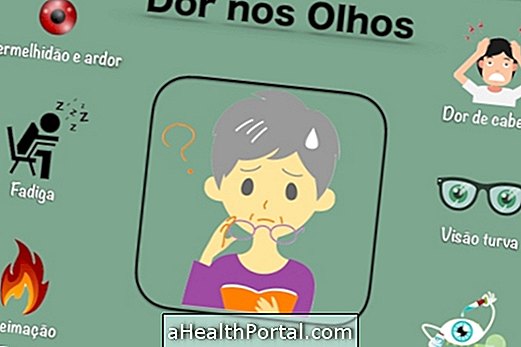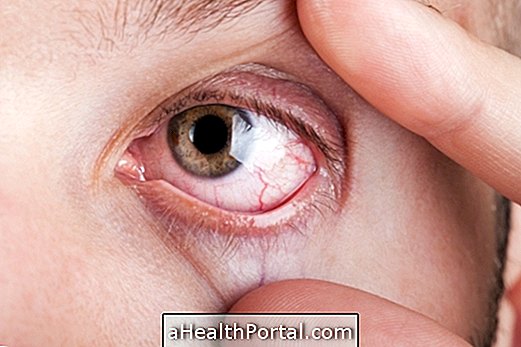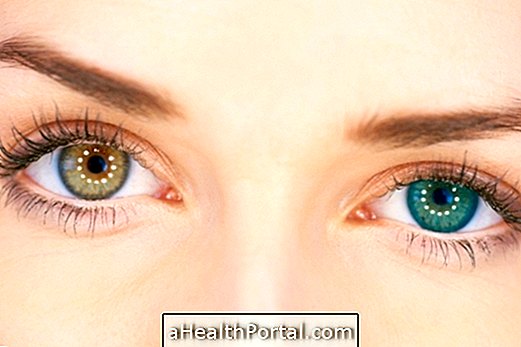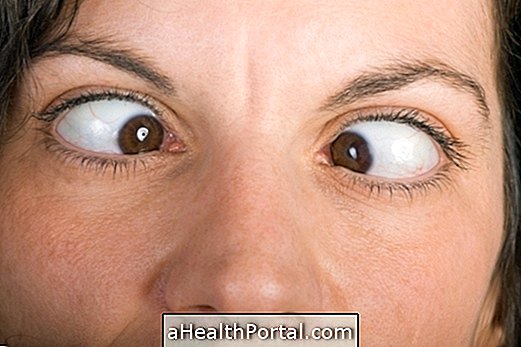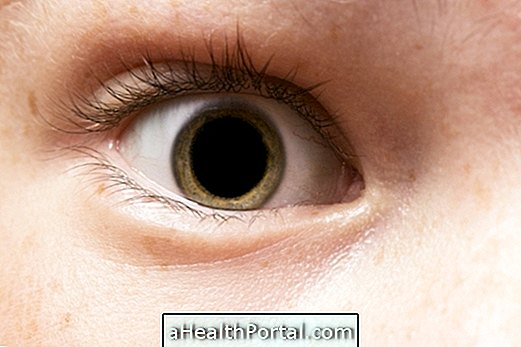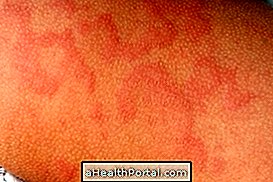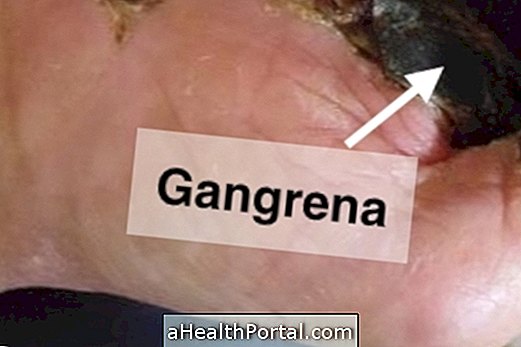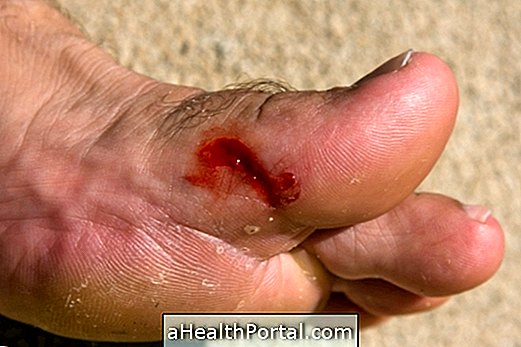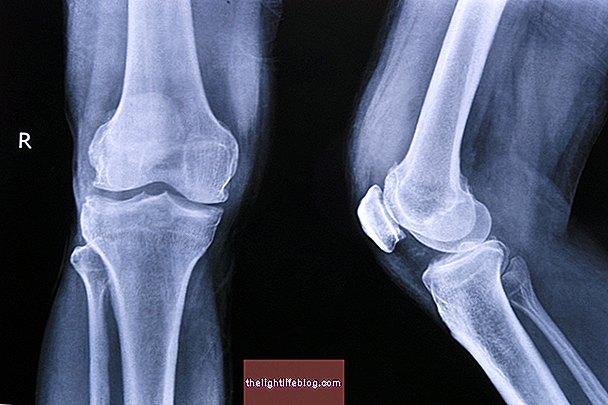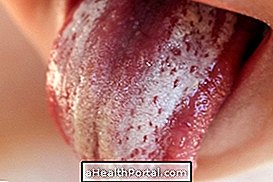Knowing the type of conjunctivitis in question is very important to perform the treatment correctly and prevent the worsening of the disease. The most commonly used remedies are eye drops for conjunctivitis, which must be used under medical prescription.
Some tips for treating conjunctivitis are:
- Keep eyes clean and dry;
- Use sterile saline to wash the eyes;
- Wear disposable tissues or wipes to dry the eyes;
- Wash hands with soap and water several times a day and always before and after cleaning eyes;
In addition, you should also avoid sunlight and wear sunglasses whenever you leave the house.

The inflammation of the ocular membrane, called conjunctiva, can be caused by allergy, air pollution or contamination by bacteria or viruses, which can cause symptoms such as eye pain, itching, redness and tearing of the eyeball, swelling of the eyelids and sometimes fever, headache and insomnia. The treatment depends on the causative agent of conjunctivitis and consists of the application of eye drops with antibiotics, corticosteroids or antihistamines.
1. Viral conjunctivitis
A good remedy for viral conjunctivitis is the saline solution that helps cleanse the eyes and keep them properly moist. Generally, viral conjunctivitis does not require a specific treatment, however, the doctor may indicate the use of lubricating eye drops.
In severe cases where vision may be affected, topical corticosteroids may need to be used, however, care should be taken with these medications because they may make the problem worse.
2. Bacterial conjunctivitis
The remedies used for bacterial conjunctivitis are eye drops such as Maxitrol or Garasone, which contain antibiotics associated with corticosteroids, which fight infection and help alleviate symptoms such as ocular discomfort, inflammation and redness, but this type should only be used under medical supervision.
3. Allergic conjunctivitis
The most commonly used medications to treat allergic conjunctivitis are anti-allergic drops with antihistamine properties, which will reduce the production of histamine and consequently reduce symptoms such as itching, swelling and redness, as in the case of Visadron or Zaditen, for example.
However, for the treatment of allergic conjunctivitis to be effective it is important to identify what caused the allergy in order to avoid contact again.
Home remedy for conjunctivitis
There are home remedies that are great for treating or alleviating conjunctivitis and facilitating healing, such as Parrika tea pads or carrots, which contain properties that help relieve redness, pain and itching in the eye.
In addition, home treatment can also be done only with wet compresses in cold water that helps relieve swelling, however, these home treatments should not replace the use of medicines when prescribed by the ophthalmologist. Here's how to prepare these home remedies.
